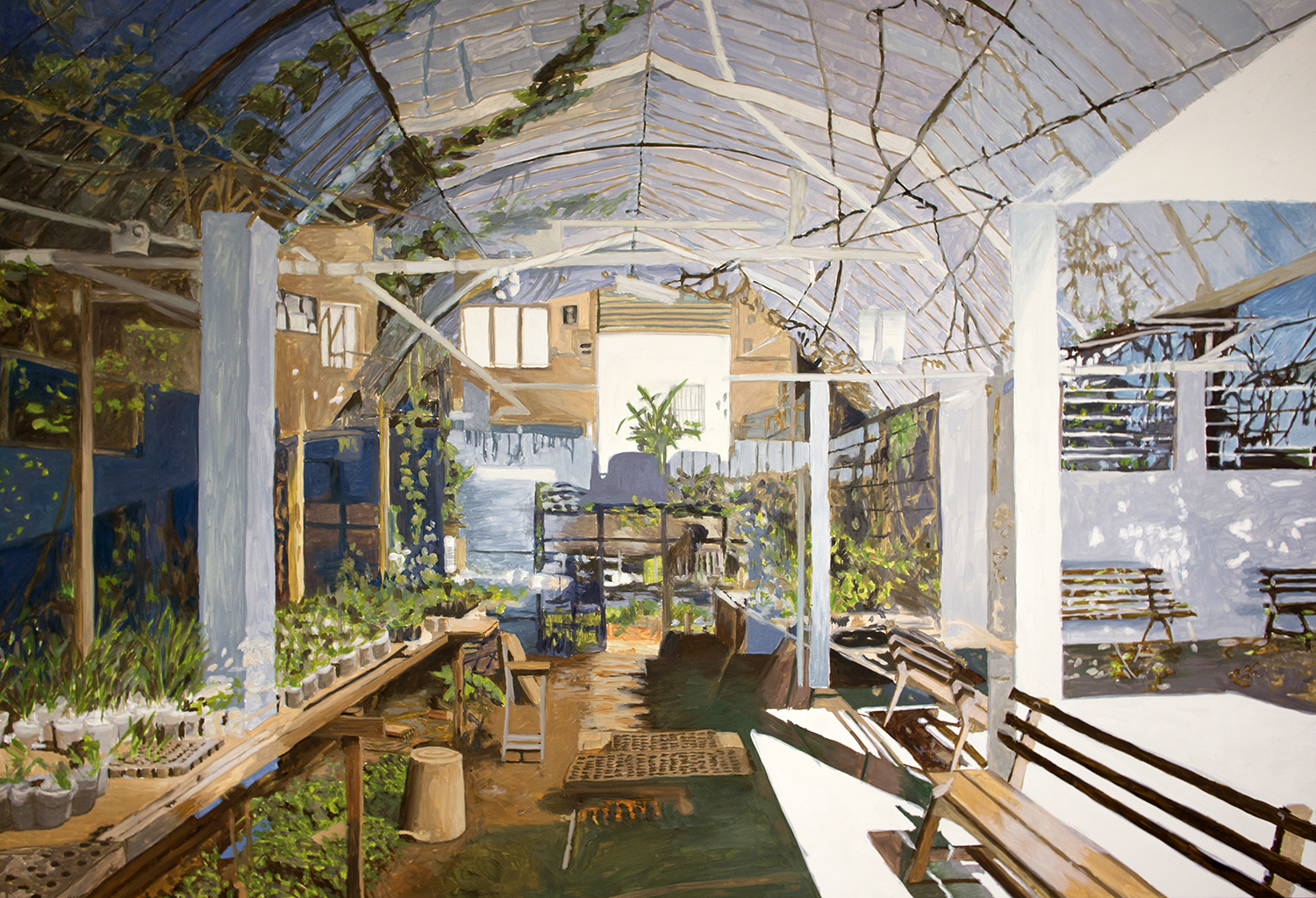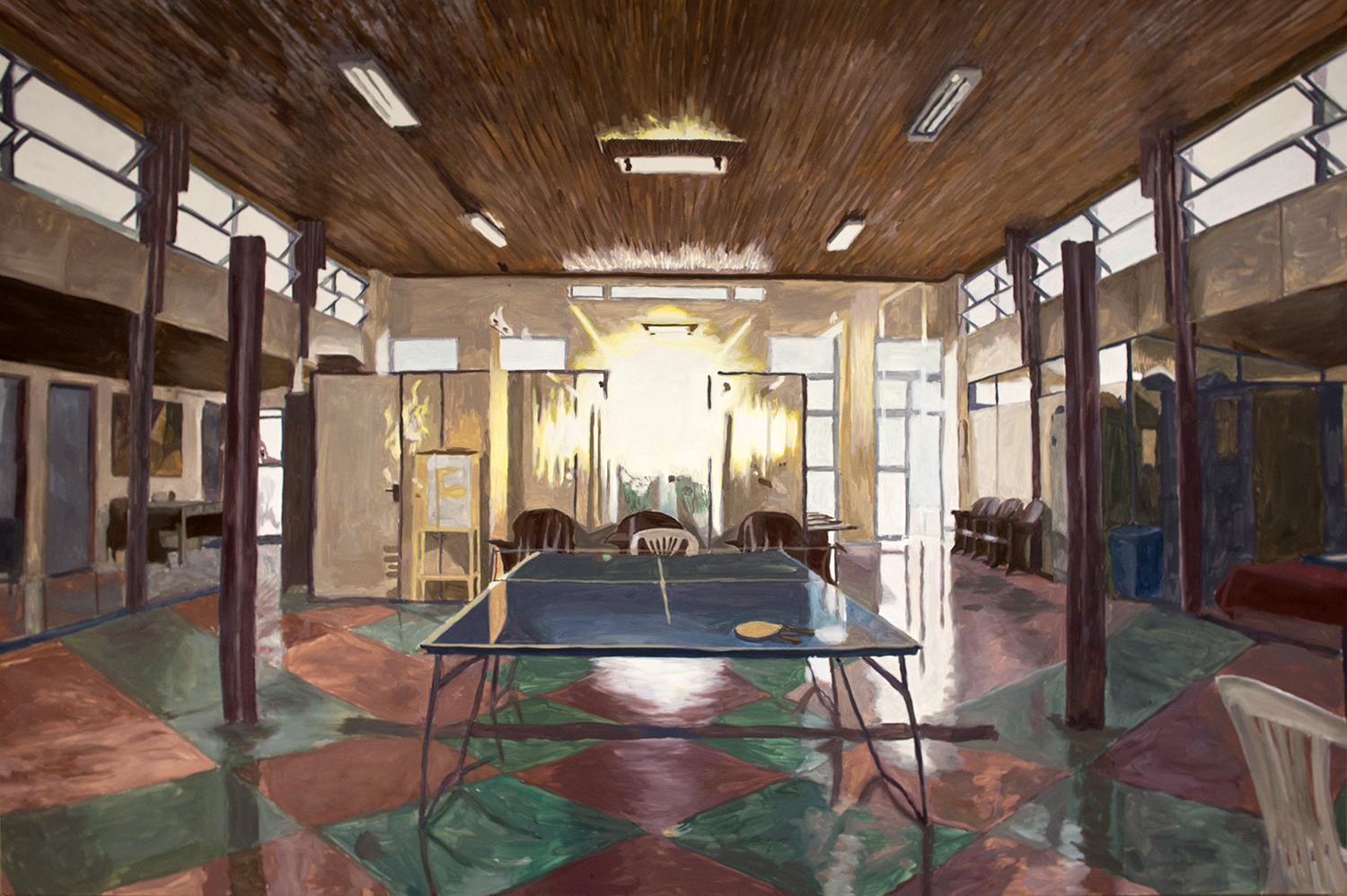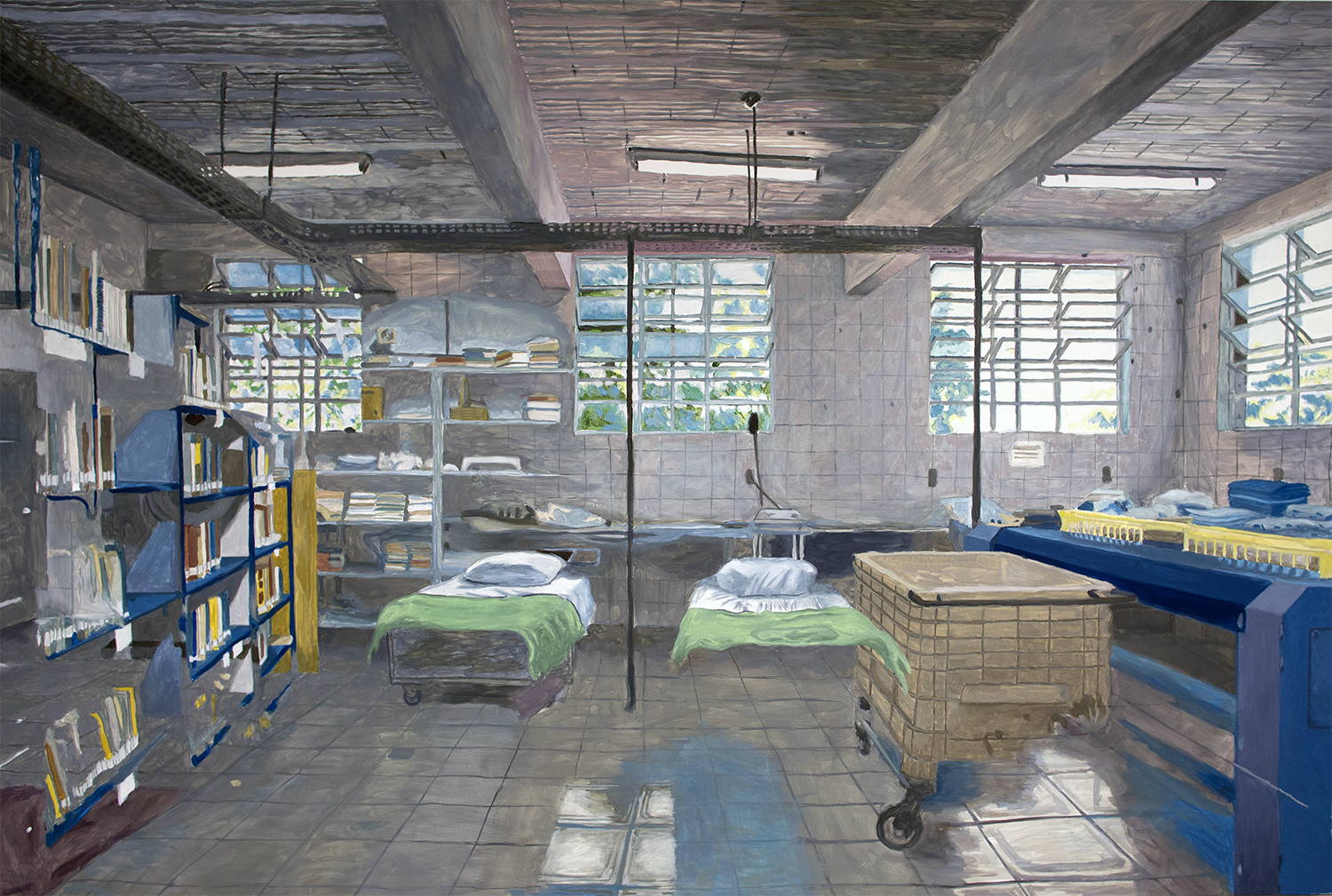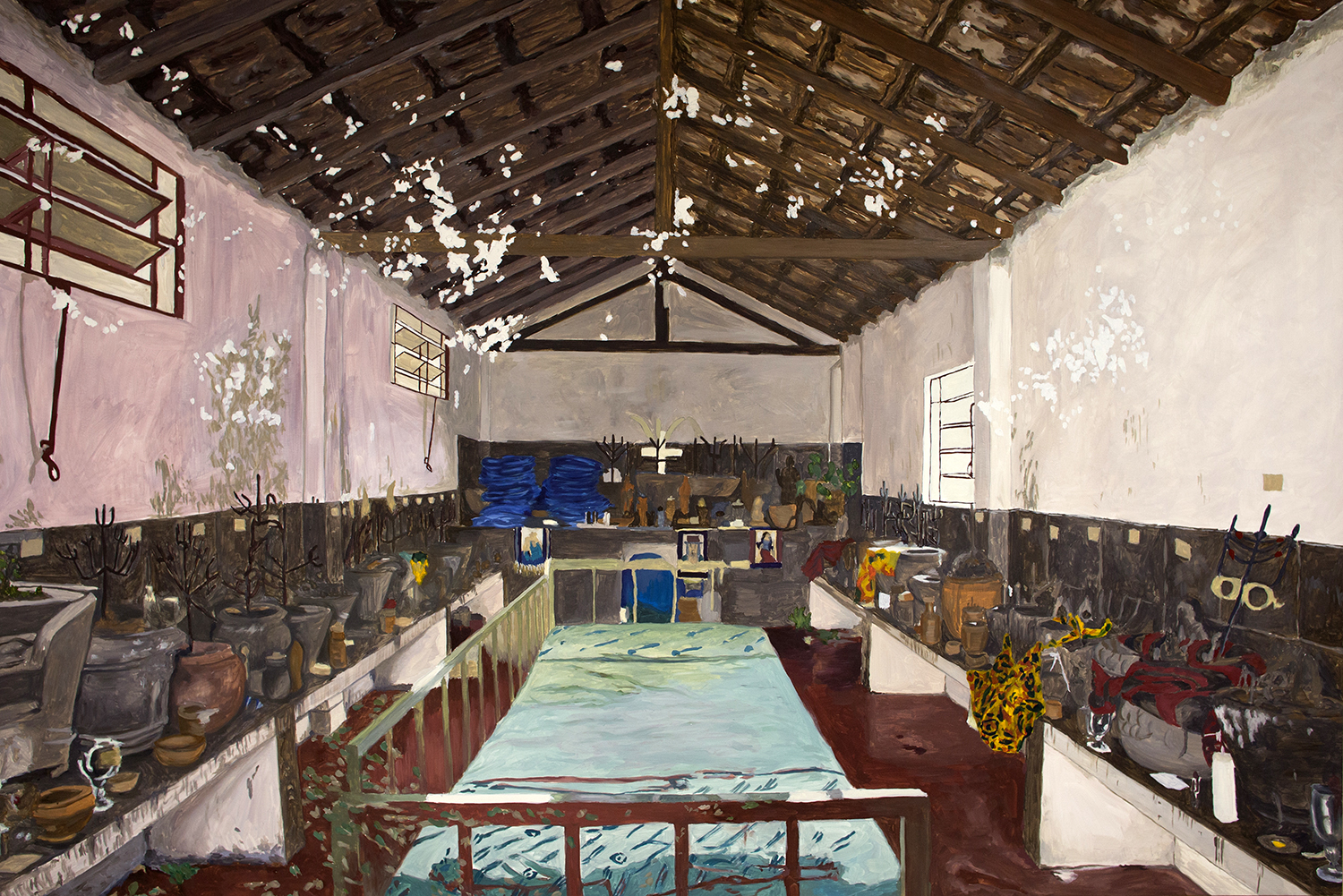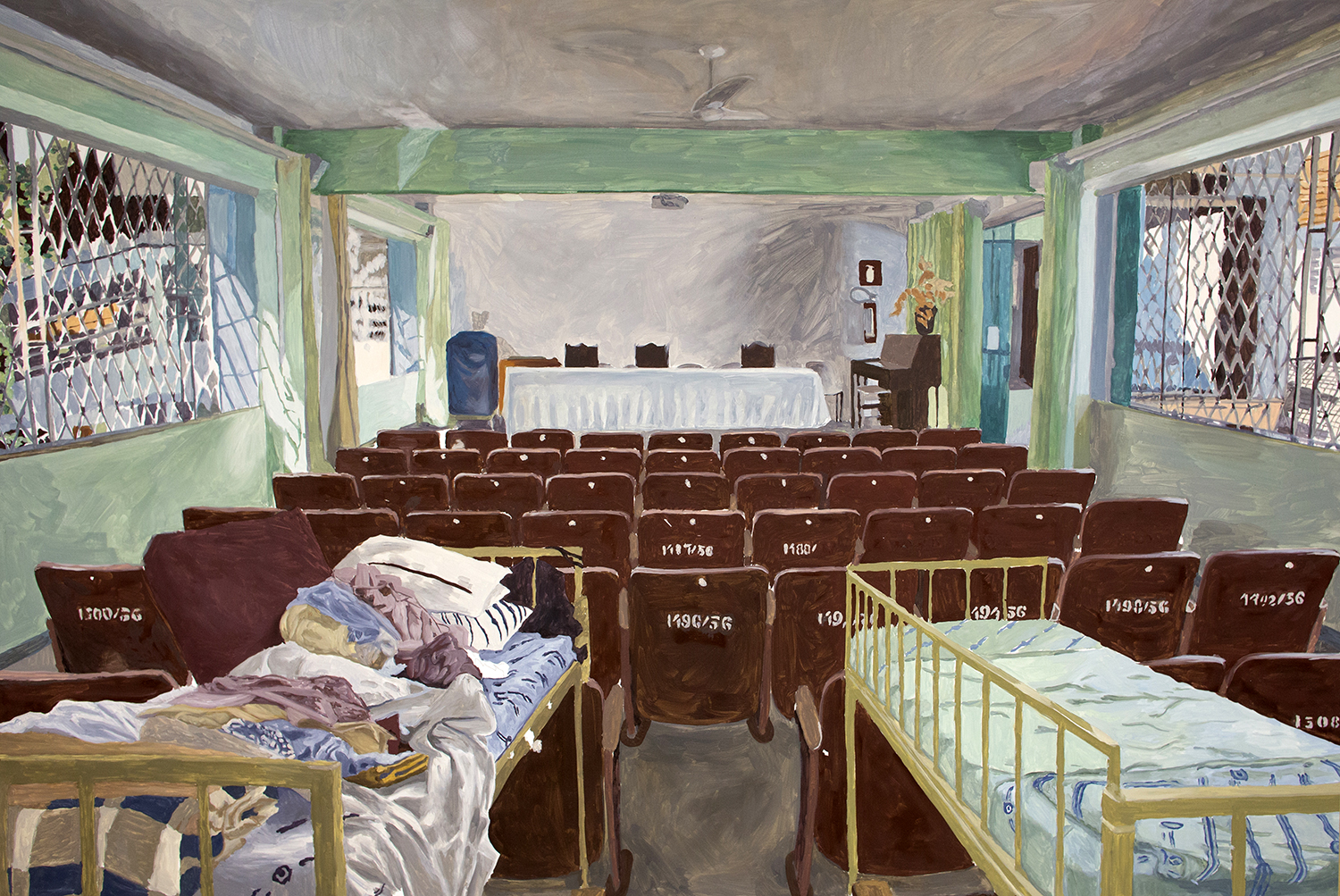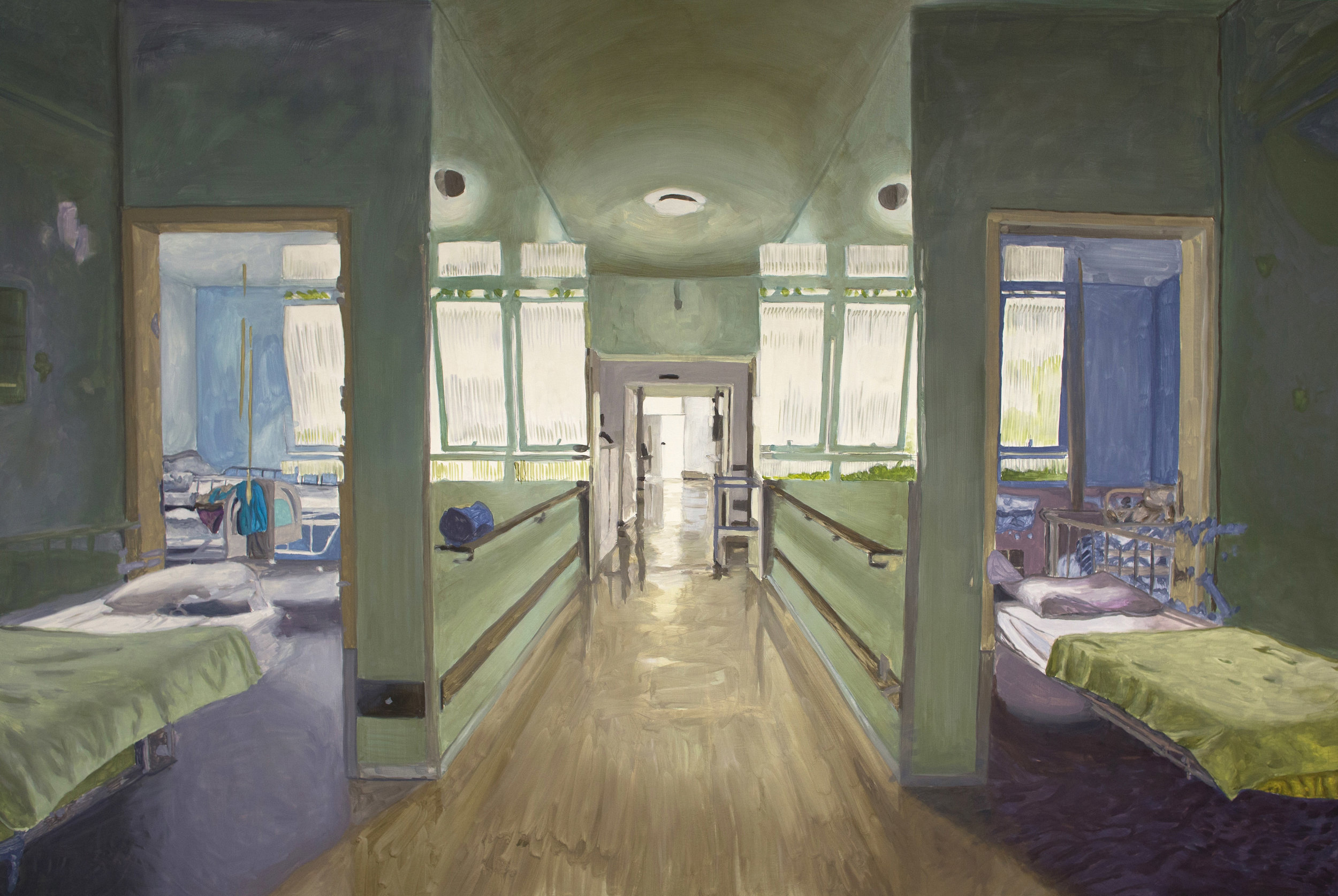Painless: 6th Ed. of the Pampulha Residency Grant, Belo Horizonte - Minas Gerais, Brazil (2016).
The work of Victor Mattina carries a complex and distant challenge: how to make the invisible visible. His figurative paintings, that could roughly be described as a hospital scene, a game room or a contained and turbulent garden, are everything but mere daily landscapes. We never remember these places as such when we are in front of his canvases. When placed side by side, the three paintings actually build a visual syntax that emanates the anguish of an absent presence. This absence talks to, forges and contaminates us. In a certain way we grope at the utterly abstract fact that we too are the subjects of what we see.
Mattina has applied for the sixth edition of the Pampulha Grant as a painter - an artist whose language is usually averse to the nature of this kind of program. With that gesture, he wanted to research the universe of psychiatric hospitals and places of religious cult and devotion in Belo Horizonte.
“Contamination”, “Containment” e “Vacancy”, the three pictures shown at Museu da Pampulha, are the result of this process. The floating bed, the garden that is all about waiting, the game that has already ended or that hasn't even started - confident and at the same time lame paintings. Lame because they include silence, lack, a mumbling character - an inhabitant of the margins - who made them possible.
The sensibility to grasp one of the most complex problems of our age - the disparity in the nature of different kinds of time - can be found in these words of the artist: "It is possible to think that the slow pace of this rusting life is more closely related to plants than to people. Handling shoots, seeing them become leaves and sprout fruit and flowers is a good way to learn how to abandon the clock and live in the pace of things. Everything lives and everything yearns, it is a pity that things surpass us in this sense."
Victor Mattina directs his attention to places destined to receive extreme suffering or questioning, that is to say, places soaked in a register that is, above all, intangible. However, such spaces have never been embedded in his research, echoing no trace of opportunism or illustration. Each painting welcomes the unique mystery of the original scene. A state of abandonment echoes in the work. But instead of meaning fragility or frailty, this abandonment becomes an unsuspected force when social ties are built. "It is possible to use a more Freudian approach to say that people establish social relations to affirm their abandonments. To affirm one's abandonment means to establish relations knowing that you will not find support in others. In them, you will find whatever dispossesses and abandons you. But it is a formative abandonment. In a sense, it means the ability you will develop to open yourself to the things you don't control in others."
His paintings seem to mutter something along the lines of the romantic poet Friedrich Hölderlin: “There where danger lies, there also thrives that which saves us.”
Luisa Duarte
Between May and October 2016, Mattina lived in the city of Belo Horizonte to develop his research project and residency program for the 6th Edition of Bolsa Pampulha.
Accompanied by psychologist Fabiane Melo, they traveled to public and private mental health institutions in the capital of Minas Gerais. The paintings you see here are of impossible spaces, created by merging the capturedphotographs.
Curator: Cauê Alves
Text: Luisa Duarte
Translation: Marcello Lino
Residency Advisors: Luisa Duarte, Mabe Bethônico e Moacir dos Anjos
